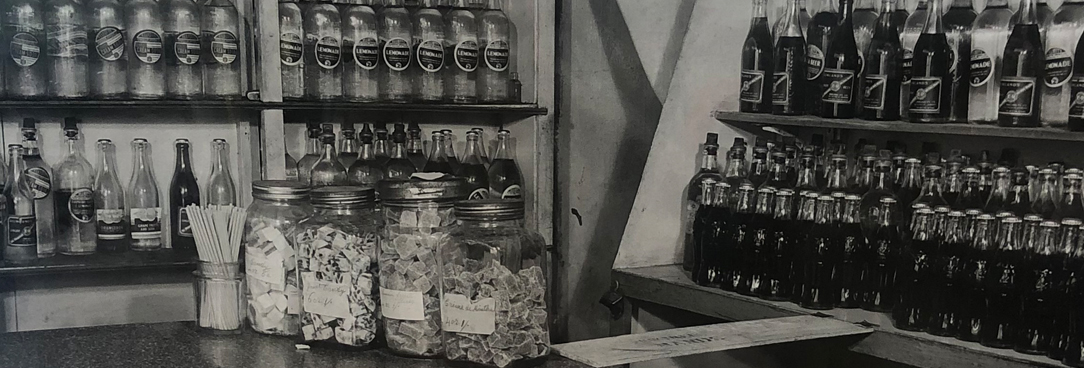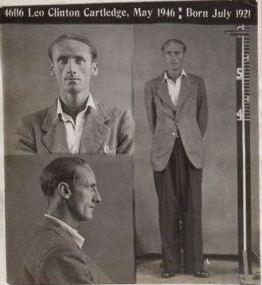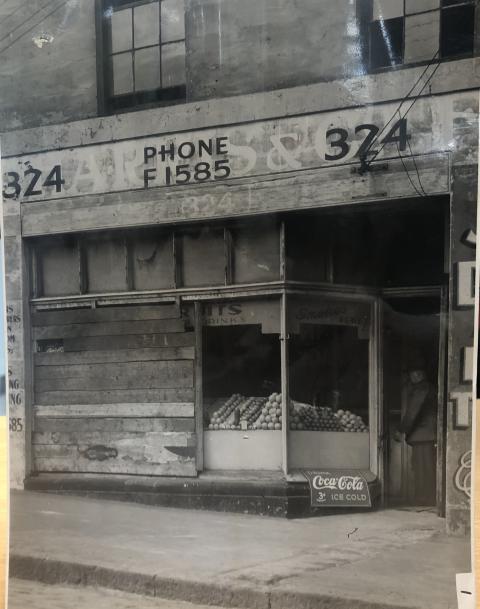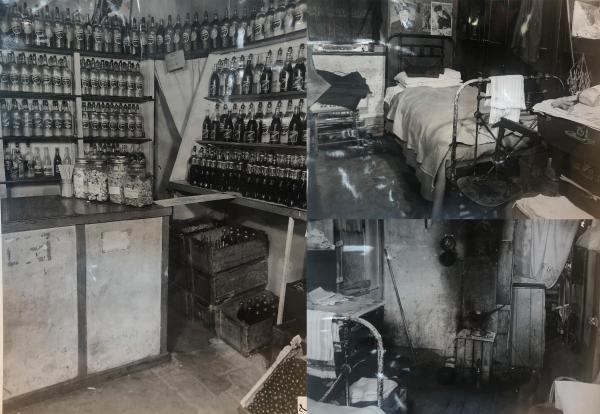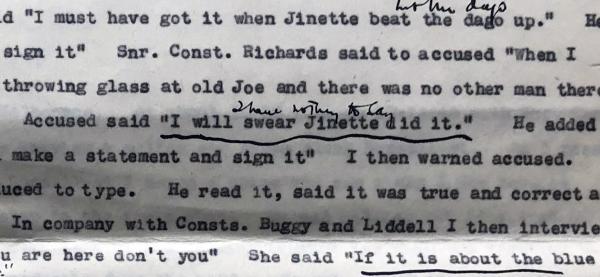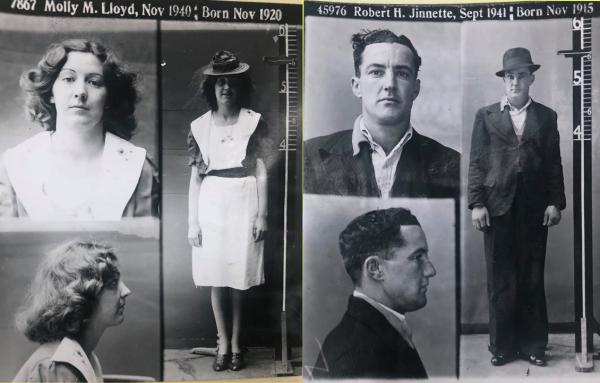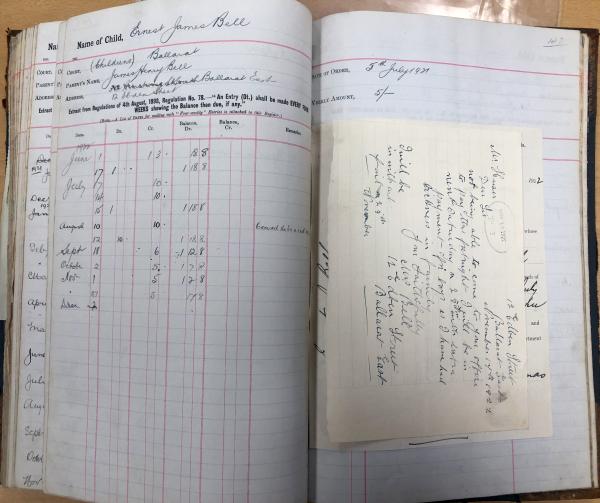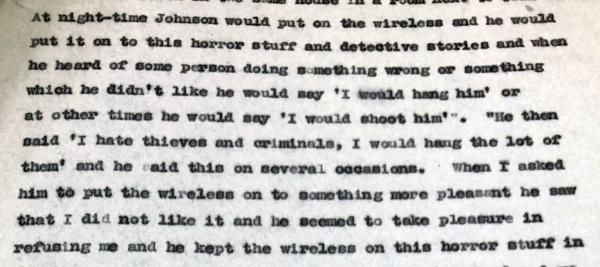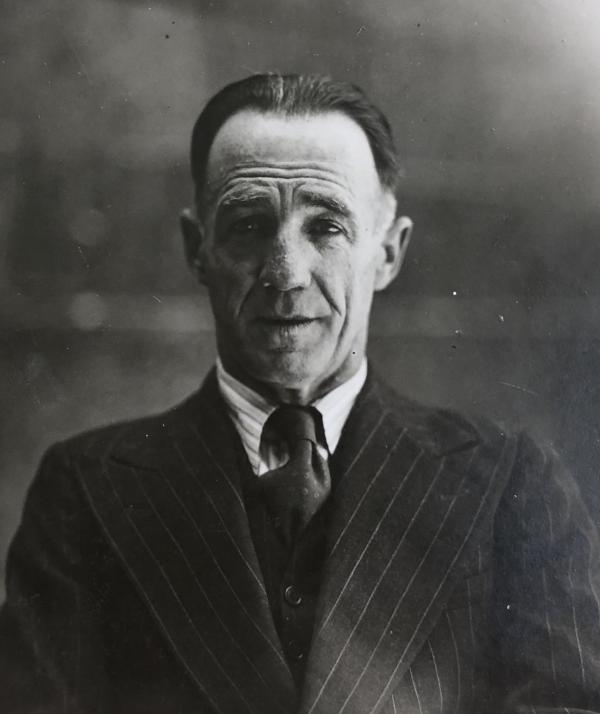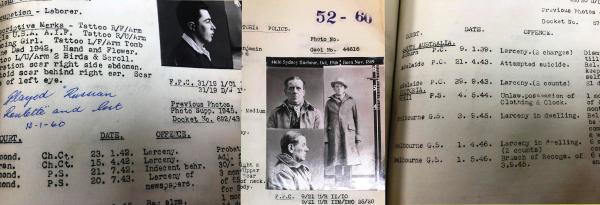
Author: Tara Oldfield
Senior Communications Advisor
Every year on the 1st of January hundreds of state archives are made public for the first time as part of Public Record Office Victoria’s annual Section 9 record openings. This year’s files feature 1940s Fitzroy stand-over man Leo Clinton Cartledge and accomplice Molly Moran; the 1946 capital case of Trevor Francis Sanderson McKenzie; 100-year old Ballarat-based maintenance records; and much, much, more.
About Section 9
Under Section 9 of the Public Records Act 1973 files of a personal or private nature are closed to prevent the violation of personal privacy. A broad guide to time periods for closure under Section 9 is as follows:
- Records primarily concerning adults may be closed for 75 years.
- Records concerning children as the primary subject may be closed for 99 years.
- Records such as staff records where the individuals concerned may still be in the workforce may be closed for a lesser period such as 30, 40, or 50 years as appropriate.
Please note the proceeding text describes records related to crime, assault and death and may be upsetting for some readers.
Leo Clinton Cartledge criminal trial briefs
Included in this year’s openings are multiple criminal trial briefs related to Leo Clinton Cartledge. The Cartledges were an extended Fitzroy crime family led by notorious standover man Leo. The Cartledge’s were on the Melbourne crime scene throughout the 1930s, 40s and 50s. Leo had three brothers known to police: Henry and David (Dopey) were often charged with housebreaking, robbery and assault, while Kenneth Roy worked the ginger game with de facto Blanche Harris and sister in law Phyllis (who often went by Rayon Clarke). In 1939 the brothers attacked two men, Norman McAllister and notorious gunman William Grosvenor, resulting in Kenneth being shot in the head - he survived. The Cartledges were often acquitted of their crimes. Leo Cartledge was no exception. In 1945 he was acquitted of murder (the book Gangland Melbourne features the Cartledge family and was the source for some of this information).
Leo’s brush with one of the harshest punishments you can get, a death sentence, didn’t deter him. 1946 was a busy year for him and his fellow criminals Ray Abbott and Molly Morva Moran.
On the 7th of January 1946, Leo and Ray Abbott were caught stealing a car and taken to the City Watchhouse by Detectives. Abbott was placed in the northern cell and Leo in the southern cell. Later when Constable Gleeson went to check on them he found Abbott no longer in his cell.
“I noticed that the northern cell door was ajar and Abbott was not in the cell. The lock of the northern cell door was missing. The table which was previously in the grille was in the northern cell and under a ventilator…The southern cell door was ajar. The padlock had been forced off and the hook produced which was affixed to an iron bar which keeps the trap door closed had been wrenched from the bar on the southern cell door…Both accused were in the southern cell lying on the floor... In the northern cell was Abbott’s hat and a pair of tan shoes. I said ‘who owns these shoes’ Abbott replied ‘I do.’ On both of accused hands were whitewash and black dust similar to what was on the board and where it came out of the ceiling. I said to Abbott ‘What did you try to break out of here for?’ He just laughed at me and said nothing. I said to Cartledge ‘what did you try to break out of here for?’ He just laughed at me and said nothing.”
Leo later told another police officer, “I must have been drunk to do that!”
It wasn’t long before Leo Cartledge was back in Court answering for another charge from the previous year, this time with accomplice Molly Morva Moran.
---
Definition of ‘Standover Man’
NOUN, Australian Informal
A person who extorts money by intimidation
Collins English Dictionary
---
Emanuele Miceli: “I conduct a mixed business at 324 Russell St, Melbourne, and reside there. I remember between 10.30 and 10.45pm on Saturday 17/11/45…The two accused came into the shop…Cartledge began to run into another room and I stepped across to him and I said ‘where are you going? What’s the matter? Why do you want to go inside.’…I put the wooden bar across the counter and said ‘You won’t cross here.’ At this time the accused Moran was still in the passage. I said to accused Cartledge ‘Get away’. He leaned against the bar of the counter. When I turned my back to see if the back door of the shop was properly locked the accused Cartledge followed me in...As I was telling accused Cartledge to get out of the back room I heard two knocks at the back door of the room. Accused Cartledge went immediately and opened the back door and gave permission to accused Moran to enter. Despite my protestations both accused sat down. The accused said they were going to have a friendly toast to me in the form of a drink and they said they would then go…the accused Moran went and closed the door which was left ajar and then stood beside the door. I told them once more to get out. I turned my back to go into the shop. As I turned my back I felt a knock on my head. I put my hands on my head and felt splinters of glass. I called out ‘help they want to kill me.’ Immediately after that accused Cartledge grabbed me by the coat and pulled me towards the bed. As I was still crying for help I heard accused Moran say ‘Kill him to keep him quiet.’ Accused Cartledge hit me a second time with a bottle but I turned my head and missed most of the blow... I then grappled with the accused Cartledge after the second blow. During the grappling I managed to put accused Cartledge on the bed and caught him by the throat. Accused Moran then came and gave me a blow on the head with a bottle… I released my grip on his throat and endeavoured to get from the room. Both accused prevented me by pulling me by the dust coat back into the room. I was trying to gain distance towards the exit and I was protecting my head with my hands. I managed to get out of their grip and got out on to the footpath and began crying for help…When I got to the footpath I locked the door to keep them in… both accused helped to get the show case up and accused Cartledge threw it against the glass window of the shop. When the glass was broken I saw both accused trying to get out through the aperture but I pushed both accused in…When the police arrived I released hold of accused.”
Both Cartledge and Moran came up with different stories to the one presented by Micelli. Cartledge told the Constable of the wireless patrol that it was actually a man named Bobby Jinnette who assaulted Micelli. The Constable didn’t buy it:
“I said ‘how do you account for the fact that when the police arrived the doors were locked and you were the only one there.’ He said ‘I swear Jinnette did it.’”
At first, Moran denied knowing anything about Jinnette being at the scene. According to her:
“I went into the shop and asked old Joe if I could have a rest on his bed. I was only there a few minutes when the old bastard came in and tried to rape me. You know I can protect myself. Then Leo came in…he was trying to protect me.”
By the time of trial she had changed her story and agreed with Cartledge that Jinnette had been there. According to 1st Constable O’Dwyer:
“The man Jinnette referred to is a well known criminal and to the best of my knowledge he has not been in Melbourne for over two years. His present whereabouts are unknown.”
The jury found it hard to know what to believe. Did mystery man Jinnette commit this assault or Cartledge and Moran? Did an attempted rape occur? Trial after trial the jury could not agree and the accused were remanded. In closing, the Judge told the jury:
“The defence suggests here that this was simply an innocent visit to this shop to have a drink. The Crown suggests it was nothing of the kind, there was something far more sinister behind it, and although the Crown cannot put its finger on anything and say ‘This was the motive’ it suggests to you the whole of the evidence should lead you to the conclusion it was something much more deadly than just going to have a drink of wine, something in the nature of robbery, or what is in slang terms called ‘standing over a man’.”
Did Cartledge and Moran also try to threaten the jury? At one point during the second trial, before breaking for lunch, the Prosecutor and Judge shared this exchange:
Mr Jones: “If your Honor pleases, in view of instructions I have just received, I would ask that the jury be locked up. The police, I understand, have received certain instructions which make it appear highly probable that an attempt will be made, and in view – Your Honour knows of the progress of the case; such a thing is very likely. They will finish tomorrow, it is not as though it is likely to be a lengthy hearing.”
His Honour: “When was this information received?”
Mr Jones: “Just this morning I am instructed. In view of the happening at the first trial when a juryman got very nervous…”
His Honour: “Yes I remember.”
After three trials they were finally found guilty, though Cartledge later had his sentence quashed on appeal.
Maintenance register
A Ballarat Court of Petty Sessions Maintenance Register for the years 1904-1922 is the only record of this kind for Ballarat held in the state archival collection.
The Neglected Childrens Act (emblazoned on the spine of the volume) contains direction around maintenance support provided by husbands who left their wives or children without means of support. This record was created to record and enforce payment following a court order requiring that maintenance be paid for the support of a child. For each order, the details recording these payments were spread over a double page. Details recorded at the top of both of the pages were the name of the child, the Court making the order, parents name and address. The name of only one parent is listed. The date of the order is recorded at the top of the second page along with the weekly amount which must be paid to satisfy the order. There are also notes attached within some of the pages including letters from parents addressing late payments. All orders in this series were made at Ballarat Court of Petty Sessions. It is unknown whether registers exist for the years before or after those held in this series.
One entry is that of Ernest James Bell. His father’s name listed on the file was James Henry Bell and the order of maintenance was dated 5 July 1921. Payments can be seen listed down the page and attached inside are letters including one explaining late payment due to sickness in the family. There is another memo that states that on the 29th of July 1921 Ernest went to service and ceased to be a cost to the Department so payment from James Bell was no longer required.
Ten years later a 1931 prison register for an Ernest James Bell states that he went onto become in arrears of maintenance in Ballarat for his own children.
Trevor Francis Sanderson McKenzie capital case file
Detective Joseph Angus Heath was working at the Fitzroy Detective office on the 17th of July 1946 when he received a call from a man he knew to be a small time criminal and ex-serviceman, Trevor Francis Sanderson McKenzie. The file states:
“Although he (McKenzie) has been convicted on many occasions, he has always shown a willingness to help Police and… has been responsible for the arrest of numerous criminals, and the recovery of a large amount of stolen property.”
But when McKenzie called Detective Heath on the 17th of July, he had something much bigger to confess. Detective Joseph Angus Heath:
“… about 3pm when I received a telephone call. I recognised the voice of the caller as the accused McKenzie. I said to him over the phone ‘is that you, Trevor?’ and the accused said ‘Yes, it is me. I have something heavy for you.’ I said ‘why don’t you come out and see me.’ The accused said ‘I don’t want to come out straight away. I want to have a few drinks, because when I come to the police station I won’t be leaving.’ I said ‘why is that?’ The accused said ‘Joe, I have murdered a man. It’s awful.’ I then heard him crying over the phone…
At the police station “I said to him ‘where did this happen?’ and the accused said ‘at Hastings near Mornington. His name is Jack Johnson. We were working for a man named Whitten on his property. I have been cutting wood for five weeks…Have you had any report of a man being murdered at Hastings?’ I then left the accused and made some enquiries and I returned to him and said ‘I can’t find any complaints of this nature.’ The accused said ‘I wondered why. I have been looking in the papers every day and I could not see it. They could not have found him yet.’ I then said to the accused ‘how did this happen? Did you have a fight with this man Johnson?’…The accused said ‘I went out there to the bush to get away from the City and the beer and to straighten myself up. I was working with Jack Johnson. We were working together and we lived in the same house in a room next to each other. At night time Johnson would put on the wireless and he would put it on to this horror stuff and detective stories and when he heard of some person doing something wrong or something which he didn’t like he would say I would hang him or at other times he would say I would shoot him. He then said I hate thieves and criminals, I would hang the lot of them. And he did this on several occasions. When I asked him to put the wireless on to something more pleasant he saw that I did not like it and he seemed to take pleasure in refusing me and he kept the wireless on this horror stuff in spite of me. We were always arguing about the food and me not going out to work on wet days and he would not buy sufficient food for himself and when I bought extra food he would growl at me and it would cause arguments between us. When he had this horror stuff on night after night I could not stand it any longer.’
The accused then started to cry again and he then said ‘I picked up the gun and let him have it. I then went mad and I do not know what I did then. It is awful. When you see him you won’t want to talk to me. Everything is ruined; if they hang me it is all that I deserve.’”
At trial McKenzie thought better of his admissions and denied he killed Johnson. Instead he stated that after they’d argued that morning McKenzie went down to pile wood down at the paddock nearby. When he returned after an hour he found Johnson dead already.
“I would like to explain something about as to why I went off my head and panicked at the time… I thought that perhaps when I found the body, I thought well, now what can I do. I have had a few arguments with Johnson. If the police find out I am here and I have had these arguments with Johnson over the food and the wireless, etc, I would be arrested for it. I did not know what to do. I did not know whether to ring up the police, whether to just leave it. I got into such a state that I don’t really remember much of what happened after that.”
The jury, after initially returning to court to say they could not agree, eventually found him guilty but stated:
“We find McKenzie guilty of murder whilst of unsound mind, with a strong recommendation to mercy.”
The Judge and Prosecutor Sproule then discussed this verdict questioning whether it is possible to find someone guilty of murder and of unsound mind at the same time. Sproule argued there was no evidence that the accused was insane at the time of the murder except for his own word. The Judge directed the jury to retire again and reconsider the verdict. They then found him guilty of murder with a strong recommendation for mercy. The sentence of death passed on the prisoner was later commuted to imprisonment for life.
Detective Heath vouched for McKenzie when he applied for parole in 1958 saying that McKenzie was unlikely to again commit a violent crime. The request for parole was stamped ‘approved’.
Bound circulated photographs and criminal offences of convicted persons
Some interesting police notes and aliases can be found throughout this year’s volumes of Bound Circulated Photographs and Criminal Offences of Convicted Persons.
- Dates of death are routinely handwritten in by police at a later date, this annotation goes into more detail ‘Played “Russian Roulette” and lost 13-1-60’
- A man who gave his name as Sydney Harbour
- Attempted suicide as a crime in 1943.
Full list of records opened 1 January 2022
Material in the Public Record Office Victoria archival collection contains words and descriptions that reflect attitudes and government policies at different times which may be insensitive and upsetting
Aboriginal and Torres Strait Islander Peoples should be aware the collection and website may contain images, voices and names of deceased persons.
PROV provides advice to researchers wishing to access, publish or re-use records about Aboriginal Peoples
